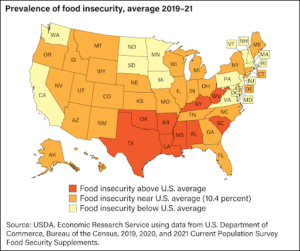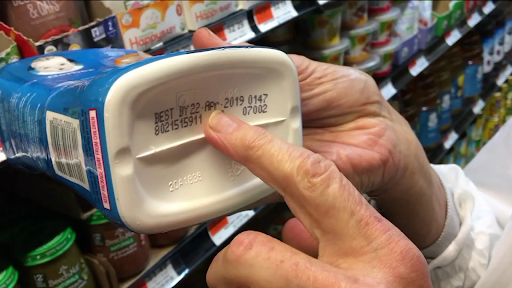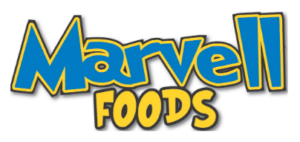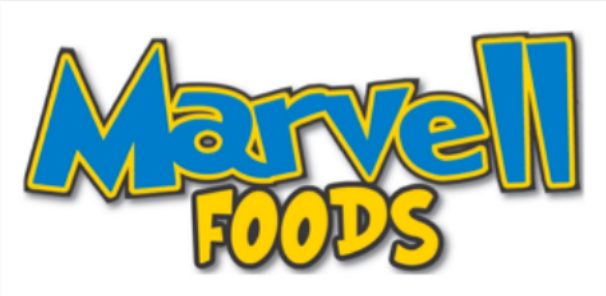The Nation’s Leader in Surplus, Seconds, Salvage, Opportunity & Spot Buys
Specializing in Short-Coded, Past “Best-Use-By” Dates and Discount Products
—-———————————————————————————————-—
How Food Manufacturers, Retailers, and Consumers Benefit From Salvage Brokers, the Secondary Market and “Close-Coded Foods
In times of rising food prices and unrelenting food insecurity crises plaguing American families, businesses and consumers are keen to combat rising costs while still offering a wide range of desirable [and affordable] food products. Within this economic paradigm [by many considered a conundrum given all the nation has been through since 2020, and not having fully recovered], there is a further need for producers along the entire food supply ecosystem to keep an eye on and improve, where possible, bottom-line revenue.
 To be sure, a challenging equation to meet business needs for profitability and consumer need for affordability. Facing any of these issues, read on!
To be sure, a challenging equation to meet business needs for profitability and consumer need for affordability. Facing any of these issues, read on!
The Secondary Food Market
There is a solution to satisfy these various intertwined and inescapable issues for the “producer/manufacturer” to remain profitable and the consumer to be a satisfied shopper. The answer — The Secondary Food Market.
Food products in the alternative arena, or what industry insiders know as the Secondary Market, represent a magic key to meeting these myriad demands. Buying and selling secondary food items and including them in production or retail for consumers are the ingredients for a successful equation and happy outcome for all parties.
“Short Dated” Food – Things to Know
 “Short-Dated,” also called “Close-Coded” food, represents a tremendous opportunity for all players in the food production/manufacturing business while allowing consumers to purchase perfectly wholesome food at significantly discounted/reduced prices.
“Short-Dated,” also called “Close-Coded” food, represents a tremendous opportunity for all players in the food production/manufacturing business while allowing consumers to purchase perfectly wholesome food at significantly discounted/reduced prices.
But first, let’s address the elephant in the room – people are both mindful and weary of foods past their “best by” date. There is also the issue of products that are “expired” or “near expired.” Naturally, it’s essential to be mindful of these matters, but it’s also critical to be educated about them – of course, there are misconceptions.
Food Safety – A Concern
Food safety, related to these various fuzzy food codes, rightly so, is a concern for consumers and retailers alike. Both parties, however, may have misconceptions regarding what’s safe to produce and consume and what’s not. Fortunately, there is concrete guidance on these various aspects of food safety related to “dating” issues.
Food Brokers, particularly those who specialize in the secondary food market, which, to be clear, is a highly-niche arena not offered by just any food broker, can be an excellent resource for ensuring that stores are stocked with safe-to-sell, and consume products at discounted, consumer-friendly prices.
Reduce Food Loss/Waste – Improve Bottom Line
The entire food production manufacturing ecosystem, the related supply chain, food brokers, and salvage food wholesalers, such as Marvell Foods, all have a responsibility to their respective clients/customers to not only follow food safety best practices but, along the way, seek to minimize (food) losses while maximizing profit. This can be a tricky needle to thread, but buying and selling secondary food products accomplishes many business goals while meeting the most pressing consumer demands concerning pricing and food insecurity, and instability.
With the above in mind, here is a primer not just on food safety, including why shopping Salvage Food (also a subset of the Secondary Food Market) doesn’t mean putting consumers’ health at risk or compromising manufacturers or their products but equally important, how and why an enormous array of food products end up costing businesses lost revenue.
What “Sell By,” “Best By,” and “Use By” Actually Mean
Dating food with terms like “sell by,” “best by,” and “use by” is common practice, but aside from baby formula, these date ranges are not federally mandated – or, in some cases, even all that telling.
There is essential nuance behind these and other dating terms worth being familiar with. Before a food manufacturer, processor, further supplier, co-packer, distributor, or retailer chooses to dispose of a product for being past its “best” or “sell” by date (or “close”), consider the definitions of these oft-misunderstood phrases.
- “Best by” or “best if used before” is not the same as “consume by” or “purchase by.” Instead, it suggests when the food will taste the freshest and suggests you should consume it within a reasonable time frame after that date.
- “Sell by” dates are usually set well in advance of when a product goes bad since the assumption is that customers might not use it right away. Generally, food is safe for a week or two after its “sell by” date – or longer if it’s frozen.
- “Use by” is the most concrete dating term and tells you at what point a product may no longer be safe to eat. You’ll usually only find these on refrigerated foods since frozen and non-perishable foods have much more lee-way.
A Win-Win for Food Manufacturers and Consumers
Bearing in mind the above information, food producers can purchase and use food products/ingredients to create/manufacture food items for consumption. Consumers can feel safe and secure in purchasing perfectly edible food items. So, where can consumers buy foods that fall into these different categories? And, as important, where can food businesses (manufacturers and the like) sell foods that fall into these food label buzzword categories? Salvage Grocery Stores.
Salvage Grocery Stores – What to Know
Salvage grocery stores offer significant cost reductions on grocery staples by selling food that can’t be shelved in traditional grocery stores. Examples of the types of foods you’ll find in them include:
- Items near or past their “best by” or expiration date
- Items with packaging defects or whose packaging has changed
- Overstock items
- Outdated seasonal items
- Items that have been discontinued
- Certain salvage items
The USDA oversees salvage grocery stores just like traditional grocery stores; consequently, consumers are assured of the same level of food safety similar to any top-tier supermarket. The only difference is that these items have been deemed unsuitable for sale in a top-tier environment, regardless of being safe to eat.
Salvage Food Brokers to the Rescue
As for where brokers come in, food salvage companies like ours help “rescue” food that meets the criteria above, which is at risk of going to waste in a landfill. Marvell Foods performs a wide range of services in the food brokerage arena, including as a middleman brokering deals between manufacturers, suppliers, co-packers, and distributors, among a host of retail operations to offer and help sell salvage items in the secondary arena. There are advantages to manufacturers using a secondary market food broker, like Marvell Foods:
- Clearing slow or no-moving inventory that is occupying expensive storage space
- Recouping investment on goods that might have to be destroyed – eliminates labor to move and dispose of food items
- Improve bottom while rotating inventory, earning fast cash on stagnant goods.
- Draw customers, and improve store traffic with discounted food items.
Work with Marvell Foods
At Marvell Foods, we maintain an extensive network that allows us to find new buyers for products that can’t be sold through traditional routes but are still safe to eat. And as one of the leading Florida food brokers, companies like salvage grocery stores rely on Marvell Foods to keep their shelves stocked with safe food that can be sold to customers at lower prices. Contact Marvell Foods to explore how we can help you buy and sell products in the secondary food market to improve sell-through and bottom line.

For more information on surplus food buying, visit https://www.marvellfoods.com/

